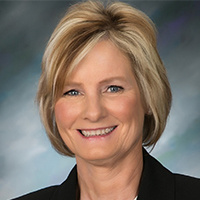 North Dakota Credit & Debt Lawyer List
North Dakota Credit & Debt Lawyer List
Sponsored Lawyers
1-10 of 62 matches
Credit & Debt
Todd Miller was born in Fargo, North Dakota where he attended school and graduated from Fargo North High School. He is an Eagle Scout. After graduating from high school, Todd went to college at the University of North Dakota and graduated from law school at UND. Todd’s practice will focus on mass tort litigation, including representing people injured by defective and unsafe drugs and defective medical devices. He will also handle personal injury litigation including representation of people hurt in automobile accidents, animal attacks and slip and falls, as well as the general practice of law.
(more)Credit & Debt
Alexander Reichert graduated from the University of Minnesota, Carlson School of Management in 1992 with a B.S. degree in Accounting. He attended the University of North Dakota School of Law and received his Juris Doctorate with distinction in 1996. Following law school, Alex was an Associate Attorney at Schmitz, Moench, and Schmidt as well as Pearson Christensen, PC. He also served as a Law Clerk for the United States District Court in Bismarck, North Dakota. Alex opened Reichert Armstrong in 2003 as a solo practice. The Firm has grown to include four attorneys in two offices in the State of North Dakota. Alex’s primarily practices criminal defense. In 1997, Alex argued United States v. Lara, before the Supreme Court of the United States. He is licensed to practice in the States of North Dakota and Minnesota, the U.S. Federal District Court of North Dakota, the United States Supreme Court, and Spirit Lake Tribal Court. Alex and his wife, Stephanie, live in Grand Forks, North Dakota, with their two children. He is a member of the Grand Forks Zoning and Planning Commission and the North Dakota State Bar Association Joint Committee on Attorney Standards. He is also a fellow in the American Board of Criminal Lawyers.
(more)Credit & Debt
A native of Bismarck, North Dakota, Theresa Kellington graduated from San Diego State University in 1989 with a degree in Criminal Justice Administration. Theresa continued on to the University of the Pacific – McGeorge School of Law, where she graduated with honors in 1992, passing the CA State Bar exam the first time. Upon graduation from law school, Theresa joined a law firm in California, where she opened a civil litigation department and worked for 3 years. After the birth of her daughter in 1995, Theresa moved back to Bismarck to be closer to her family. Soon after, Theresa began working with Pearce Durick and American Legal Services. In 2012, Theresa joined Dan Oster, and together they established Kellington & Oster, P.C. Theresa loves family involved cases, business planning, and estate planning. She states, “Working with family law can be stressful, but I love to feel like I’m doing something right.” As a pro bono attorney of the year in North Dakota, Theresa hopes to become a Judge in the future.
(more)Credit & Debt
Stacey has been a member of the firm since July 1, 2012. She had been a partner of another Fargo law firm for 15 years prior to joining Haugen Moeckel & Bossart. Her practice encompasses a number of areas of the law, where she represents both Plaintiffs and Defendants in various matters. Her practice areas center in personal injury, medical negligence, general litigation, probate, wills and estate work. She likewise serves as counsel to the Municipal Airport Authority of the City of Fargo.
(more)Credit & Debt
Gregory C. Larson has been in the practice of law in Bismarck, North Dakota for 37 years, and is a partner of the Larson Latham Huettl Law Firm. His primary areas of practice are tax, probate, business planning, estate planning, nursing home planning, and elder law. He received his B.S. degree from the University of North Dakota, his J.D. degree from Gonzaga University, and his Master of Laws in Taxation (LL.M.) from the University of Miami. Greg is licensed to practice before the Supreme Court of North Dakota, United States District Court for the District of North Dakota, the Eighth Circuit Court of Appeals, the United States Tax Court, the United States Court of Federal Claims, and the United States Supreme Court. Greg is a member of the American Bar Association (Member, Taxation Section), State Bar Association of North Dakota (Member, Section of Real Property, Probate and Trust Law, Probate and Trust Law Committee), Western Dakota Estate Planning Council (President, 1983-84, Member, Board of Directors, 1982-2000), Christian Legal Society (Member and State Director), National Academy of Elder Law Attorneys (Member and State Director).
(more)Credit & Debt
The founder and owner of Coleman Family Law is Pamela Coleman. Ms. Coleman graduated in 2002 with a Bachelor's Degree in Business Administration and Minor in Marketing from the University of Minnesota; receiving her Masters of Business Administration from the University of Mary in 2004; and attaining her Juris Doctorate Degree from the University of North Dakota School of Law in December 2007 becoming a licensed attorney in North Dakota in May 2008. Ms. Coleman became licensed in the State of Minnesota in March 2018. Prior to law school, Ms. Coleman worked with State and County Government for nearly 20 years. As a law student, Ms. Coleman clerked for Judge B.J. Jones, Tribal Justice Institute, at the University of North Dakota in all areas of tribal law; and Johnston Law Office. Ms. Coleman worked for Johnston Law Office for eight years before partnering with Jacey Johnston forming Johnston & Coleman in February 2016. Coleman Family Law opened in May 2020. Coleman Family law specializes in all areas of family law as well as family life planning (Power of Attorney, Wills, Trusts, Healthcare Directives). Ms. Coleman understands the dynamics of family law and how difficult it can be to clients. By specializing in Family Law matters, Ms. Coleman is able to assess potential client issues and provide guidance and direction to each individual client situation. Ms. Coleman treats each client with the upmost integrity and compassion while obtaining results.
(more)Credit & Debt
I have been practicing law since 1995, with a primary focus in criminal and civil litigation. Since 2000, I have represented clients in over thirty jury trials and many more trials before a judge. In addition, I have successfully represented clients in multiple appellate cases before the North Dakota Supreme Court, the Montana Supreme Court and the Indiana Court of Appeals.
(more)Credit & Debt
Proudly taking Traffic; Lawsuit & Dispute; Immigration; Workers' Compensation; & Car Accident cases out of Minot, North Dakota.
(more)












